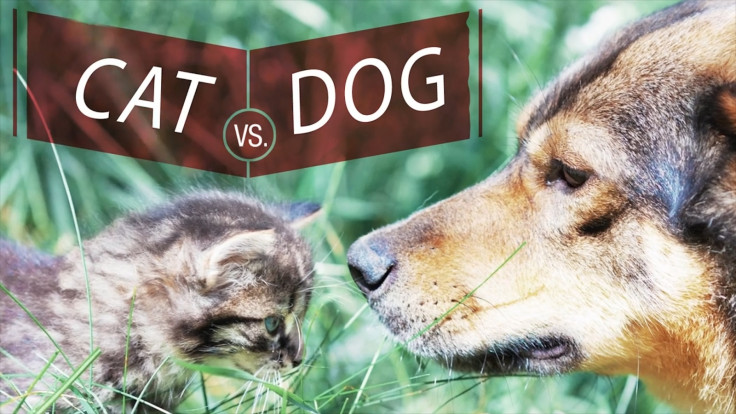Dogs are 'significantly more' intelligent than cats, finds first time study
Dogs have more cortical neurons than cats in their brains, about twice as much.
Scientists seem to have finally put an end to one of the most passionately debated arguments of modern times — are cats smarter than dogs? The answer is, no, dogs are smarter than cats, at least as far as brain function goes.
Grey matter in brains, which is responsible for thinking, planning and other complex behaviour — all indicators of intelligence, was compared between the two species and the actual number of neurons in their cerebral cortex was calculated by researchers for a study conducted at Vanderbilt University.
This study, according to a report by Phys.org is the first to actually count the number of cortical neurons in brains of carnivores, including cats and dogs. Results point out to dogs possessing significantly more neurons than cats.
Suzana Herculano-Houzel, who developed a method to accurately measure the number of neurons, said, "In this study, we were interested in comparing different species of carnivorans (Carnivora is an order under which there are 280 species of mammals that have teeth and claws designed for meat eating) to see how the numbers of neurons in their brains relate to the size of their brains, including a few favourite species including cats and dogs, lions and brown bears."
Dogs have 530 million cortical neurons in their brains, while cats have around 250 million, the study found. Humans, in comparison, have about 16 billion, notes the report.
"I believe the absolute number of neurons an animal has, especially in the cerebral cortex, determines the richness of their internal mental state and their ability to predict what is about to happen in their environment based on past experience," Herculano-Houzel explained.
"Our findings mean to me that dogs have the biological capability of doing much more complex and flexible things with their lives than cats can. At the least, we now have some biology that people can factor into their discussions about who's smarter, cats or dogs," she added.
Apart from just cats and dogs, the study also took into account one or two specimens from eight carnivorous species including ferret, mongoose, raccoon, hyena, lion and brown bear.
The study was hinged on the hypothesis that carnivores had to have more cortical neurons, meaning, they had to be smarter than herbivores. Carnivores' demanding lives and hunting for food requires more cognitive abilities than their prey, which for the most part rely on the concept of safety in numbers, states the report.
This hypothesis was proven wrong by the study. It was found that herbivores evolved developing complex brains and as a result, methods through which they escaped from their predators. Brain complexity of small- and medium-sized carnivores were found to be similar to that of herbivores.
Other surprising finding showed Golden Retrievers have more neurons than much larger predators like hyenas, lions, and brown bears, which have larger brains. Bears have brains that are ten times that of cats, but same number of neurons.
A paper titled, "Dogs have the most neurons, though not the largest brain: Trade-off between body mass and number of neurons in the cerebral cortex of large carnivoran species", detailing this study was published in the journal Frontiers in Neuroanatomy.






















